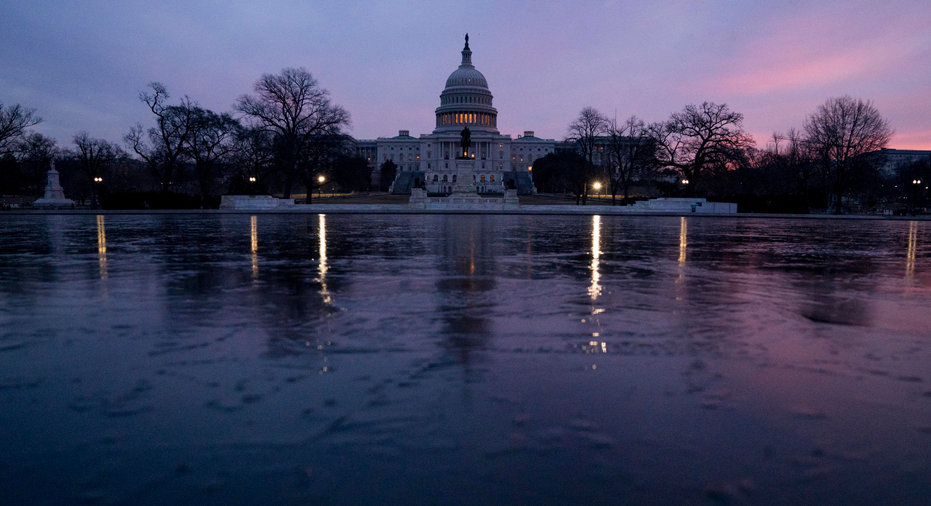The Latest: Trump pushes for more Republicans in Congress

WASHINGTON – The Latest on Congress and spending legislation (all times local):
9:15 a.m.
President Donald Trump is making the case on Twitter for electing more Republicans to Congress after signing a $400 billion spending plan.
Trump says, "Without more Republicans in Congress, we were forced to increase spending on things we do not like or want" to help the U.S. military. He says non-military spending "will never come down" without electing more Republicans in the 2018 elections.
He calls the spending plan a "BIG VICTORY for our Military, but much waste in order to get Dem votes."
He is pointing to upcoming talks on immigration, writing, "Fortunately, DACA not included in this Bill, negotiations to start now!"
Trump's tweets came after Republican Sen. Rand Paul of Kentucky blocked plans for a quick Senate vote because of his spending concerns.
___
8:40 a.m.
President Donald Trump has signed the budget deal.
Trump tweets, "Just signed Bill. Our Military will now be stronger than ever before. We love and need our Military and gave them everything — and more. First time this has happened in a long time. Also means JOBS, JOBS, JOBS!"
The House narrowly passed the budget accord in the pre-dawn hours, ending a brief government shutdown and clearing a path for huge spending increases for both the Pentagon and domestic programs.
Passage came over the objections Democratic leaders who demanded the promise of a vote to protect "Dreamer" immigrants brought to the country illegally as children.
___
5:30 a.m.
A band of tea party Republicans swung against the legislation as well, repelled by its spiraling spending levels.
The government shut down at midnight Thursday after Kentucky GOP Sen. Rand Paul blocked plans for a quick Senate vote, blaming his fellow Republicans for being "complicit" in the looming return of trillion-dollar budget deficits.
__
1:50 a.m.
The Senate has passed a massive, bipartisan budget agreement and spending bill to reopen the shuttered federal government.
The bill now moves to the House.
Senators voted 71-28 to approve the deal, easily overcoming objections from Republican fiscal conservatives who say the bill marks a return to unchecked deficit spending.
The bill stalled in the Senate Thursday night when one of the opponents, Sen. Rand Paul, refused to allow a speedy vote.
Paul's protest forced Congress to miss a midnight deadline for passing a funding measure to keep the government operating.



















